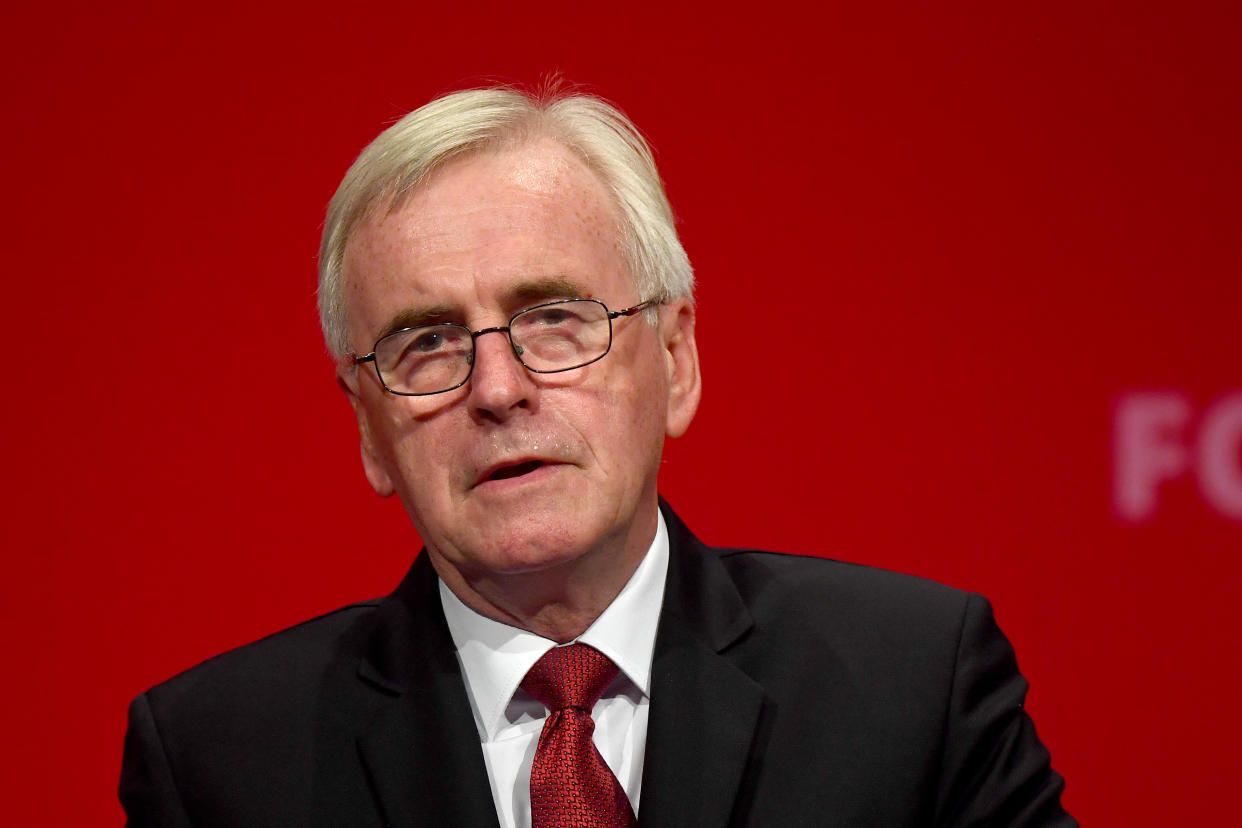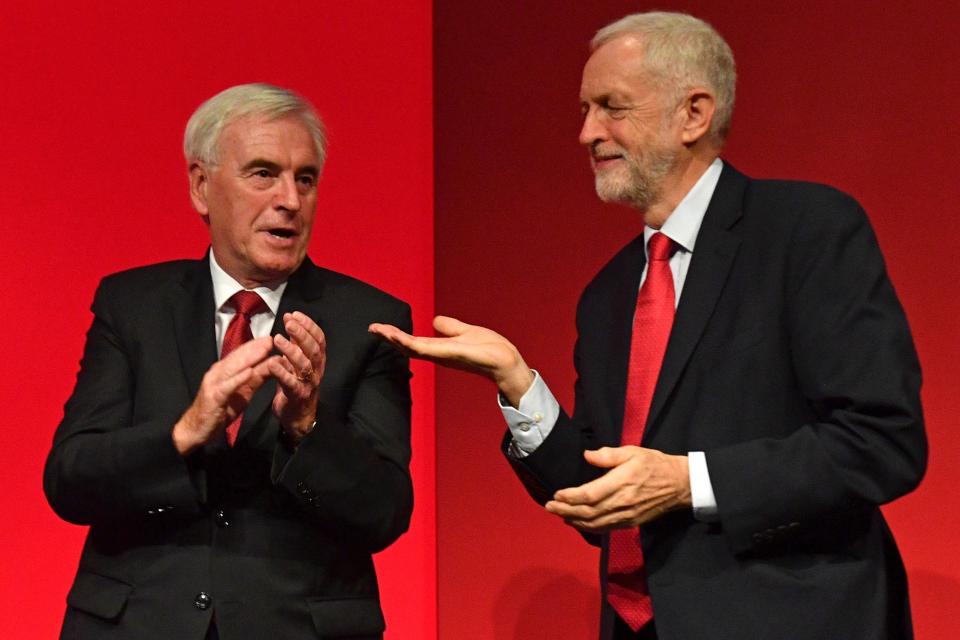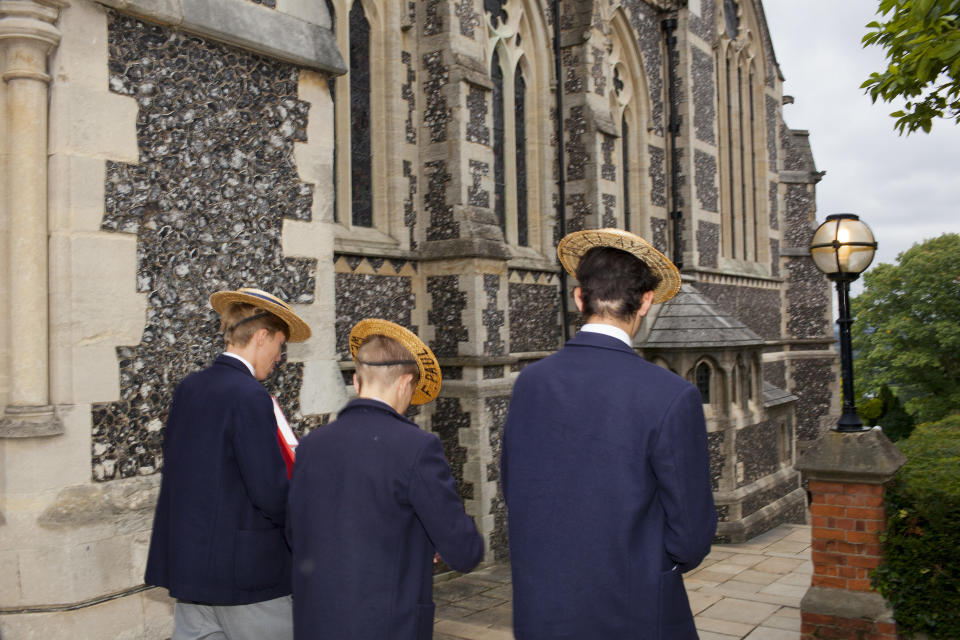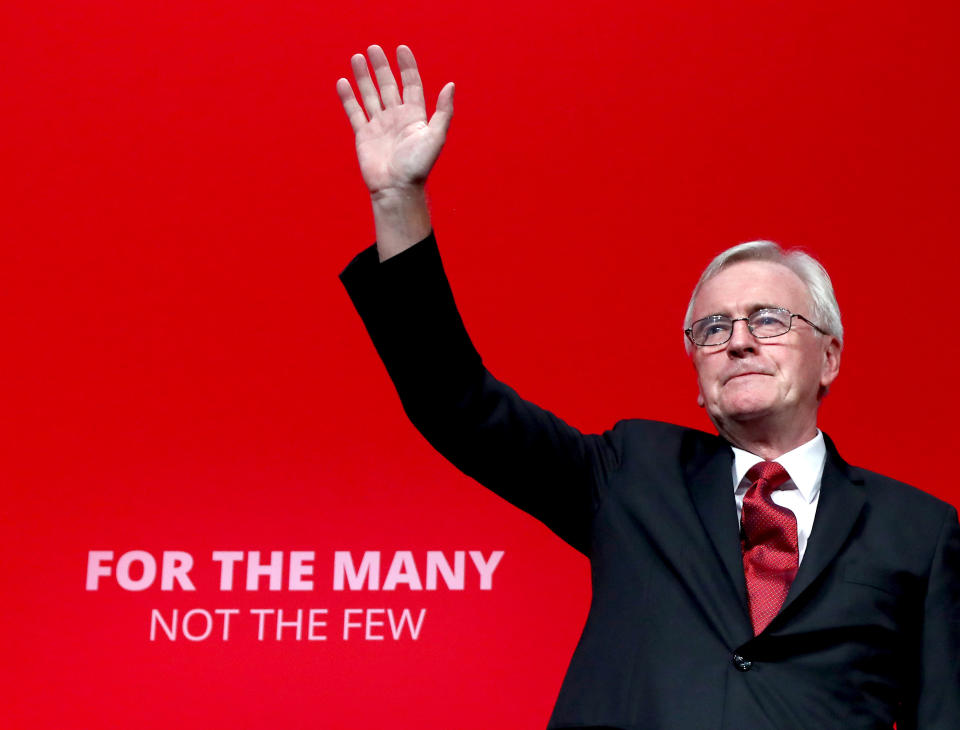Labour conference: Four things the party has promised to abolish if it gets into power

The Labour Party has proposed a raft of changes at its annual conference if it gets into government.
The party is making its pitch to its members and voters in Brighton this week, but the run-up to the conference has been marred by reports of in-fighting over Brexit strategy and its leadership.
On Monday, shadow chancellor John McDonnell outlined some of the party’s future plans.
Here are four things the Labour Party has pledged to abolish.
The five-day working week
The average working week will be reduced to 32 hours within 10 years under a Labour government, Mr McDonnell promised.
He claimed the move to an effective four-day week could be achieved with no reduction in pay for workers.
He said Britons were working some of the longest hours in Europe and promised that would change.
The average British working week was 37.1 hours in 2018, according to the Office for National Statistics (ONS) – but Mr McDonnell was probably referencing TUC analysis from earlier this year that put the figure at 42 hours.
Mr McDonnell said: "We should work to live, not live to work.

"In the 1860s, people worked a 65-hour week. Thanks to past Labour governments – but actually mainly thanks to the trade union movement – by the 1970s, the average working week had been reduced to 43 hours.
"As society got richer, we could spend fewer hours at work. But in recent decades progress has stalled. People in our country work some of the longest hours in Europe.
Read more
Eating meat ‘could be banned like smoking’, barrister tells Labour conference
Six in ten Labour members want to abolish the monarchy, poll reveals
Labour adopts policy to take over private schools
"Since the 1980s, the link between increasing productivity and expanding free time has been broken. It's time to put that right.
"So I can tell you today that the next Labour government will reduce the average full-time working week to 32 hours within the next decade. It will be a shorter working week with no loss of pay.
“As a first step, we’ll end the opt-out from the European working time directive. As we roll out sectoral collective bargaining, we will include negotiations over working hours.
“We’ll require working hours to be included in the legally binding sectoral agreements. This will allow unions and employers to decide together how best to reduce hours for their sector.”
Private schools
Labour members voted at the conference to abolish private schools.
Shadow education secretary Angela Rayner has vowed to “integrate” all private schools into the state sector if Labour comes to power.
Delegates approved a motion on Sunday that said such a commitment should be included in the party's next general election manifesto.
This would include the withdrawal of charitable status and “all other public subsidies and tax privileges”, including business rate exemption.
Properties and investment held by private schools would be “redistributed democratically and fairly” across the country's educational institutions as part of the reforms.
Matthew Adshead, vice-chair of the Independent Schools Association, which represents 470 private schools, said the policy was a “worrying proposition”.

Mr Adshead, a private school headmaster, told BBC Radio 4's Today programme: "For me it seems quite incredulous that in 2019 I'm discussing whether my private land will be seized and redistributed. It doesn't feel like I'm living in the UK any more.
“It seems hard to fathom for me. I think it is a worrying proposition that the state can be in a position to decide for parents and decide on their choices."
But Labour MP Paul Sweeney, a supporter of the Abolish Eton campaign, said it was right to take "the grubby pound" out of the education system.
"It is a matter of fact that private schools perpetuate structural inequality in our society and we can see that in the number of top professions and leadership positions in our country that are dominated disproportionately by people who went to private schools," he said.
Zero-hour contracts
Mr McDonnell pledged to rid the UK of controversial zero-hour contracts for workers. ONS figures showed in August that almost 1 million Brits are now on such contracts.
He said: “While millions are exhausted from overwork, there are too many others who can’t get the working hours they need, so we’ll also ban zero-hour contracts to make sure every employee has a guaranteed number of hours a week too.

“And our Real Living Wage will make sure that people in work earn enough to live on. Because it’s not enough to give people power over their working lives. We believe in extending democracy across the board.”
Mr McDonnell also pledged that in-work poverty would be eliminated in the first term of a Labour government.
"We have always believed that getting a job should mean you are lifted out of poverty," he said.
The roll-out of Universal Credit
Labour has vowed to halt the controversial roll-out of Universal Credit – the replacement of six other benefits with a single monthly payment.
Mr McDonnell said: “We’ll restore full trade union rights and workplace rights from day one. We’ll roll out collective bargaining to enable workers to get their fair share of what they produce.
“We’ll bring in a Real Living Wage of at least £10 per hour. We’ll end the barbaric roll-out of Universal Credit.
“We’ll cap rents and build a million new genuinely affordable homes, so young people in particular aren’t pouring away thousands of pounds from their wages to rip-off landlords.”
Business leaders were sceptical about the shadow chancellor’s plans.
Confederation of British Industry director-general Carolyn Fairbairn warned the plan to reduce average hours could hit firms and was scathing about some of Mr McDonnell's other policies, which, she said, "risk hanging a 'closed' sign on the door of our open economy".
Edwin Morgan, interim director-general at bosses' organisation the Institute of Directors, said: "Labour's working week policy may be eye-catching, but it puts the cart before the horse.
"The only way to reduce hours while maintaining pay is by improving productivity."


